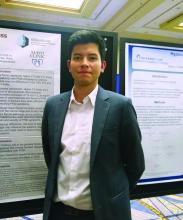new research suggests.
Those were among the findings from qualitative analyses of nearly 700 online posts from three popular online hypothyroidism forums that found that 75% of patients felt they fared better on DTE than the standard therapy of levothyroxine (LT4).
The results were to be presented at the Endocrine Society’s annual meeting in late March, but the meeting was canceled because of the COVID-19 pandemic. They were subsequently published online April 3 in Medicina by Freddy J.K. Toloza, MD, of the University of Arkansas for Medical Sciences, Little Rock, and the Mayo Clinic, Rochester, Minnesota, and colleagues.
Made from desiccated pig thyroid glands, DTE is not approved by the Food and Drug Administration because it predates the agency, but it was grandfathered in and is sold legally by prescription under the names Nature Thyroid, Thyroid USP, and Armour Thyroid.
DTE is currently used by an estimated 10%-29% of patients with hypothyroidism, despite concerns about the risk for hyperthyroidism-associated side effects.
“Current [American Thyroid Association] guidelines strongly suggest the use of levothyroxine over DTE as thyroid replacement therapy. We agree with this recommendation given concerns about DTE’s side effects,” Dr. Toloza said in an interview.
“Nevertheless, additional research should be conducted to understand if this recommendation applies to all hypothyroid patients,” he added, and for those patients who are taking DTE, more research is required to determine who is at risk of side effects and methods to prevent these.
Dr. Toloza said that patients with hypothyroidism who take DTE frequently described a lack of individualized treatments and a feeling of not been listened to as issues that were influencing their choice.
“These findings reinforce the need for patient-centered approaches in current clinical practices. Clinicians need to carefully listen to their patients and consider their individual needs and the context of every patient,” he noted.
A select group of patients do better on combined T4/T3
Asked to comment, endocrinologist Rachel Pessah-Pollack, MD, of New York University Langone Health, said in an interview, “Animal-derived desiccated thyroid hormone contains both T4 and T3. We typically do not recommend using this because it can vary in concentration, meaning that the actual preparation is not physiologic.”
Dr. Pessah-Pollack, a coauthor of the 2012 joint clinical practice guidelines on hypothyroidism by the American Thyroid Association and American Association of Clinical Endocrinologists, added that one of the major concerns about using DTE is the risk for iatrogenic hyperthyroidism, which could potentially lead to atrial fibrillation and fractures.
“That is one of the main factors that drive many professional societies to really use caution regarding DTE. That’s also why major societies recommend against using DTE ... based on the evidence to date,” she said.
The whole issue of “combination therapy” in hypothyroidism is contentious, however. Physicians can also prescribe a “combination” of synthetic levothyroxine (LT4) and triiodothyronine (LT3) treatment; this, along with use of DTE products, has been a subject of debate for many years.
The current (2014) American Thyroid Association guidelines do not specifically rule out use of synthetic LT4/LT3 therapy, rather they “recommend only against the routine use of combination therapy.” And although they don’t expressly endorse use of DTE, they removed a statement saying it “should not be used.”
“There is definitely a select group of patients who do better on combined T4/T3 treatment, and we’re still trying to delineate who that population is,”Dr. Pessah-Pollack said.
“As long as these patients are closely monitored and aware of the risk of hyperthyroidism and have their levels followed to ensure that they’re not hyperthyroid, in select cases this is appropriate.”
“But, first-line is ensuring that a good evaluation occurs. ... Clearly this helps us understand that we do need more studies in this area – well-designed, blinded studies to really help us get to the bottom of this controversy.”


